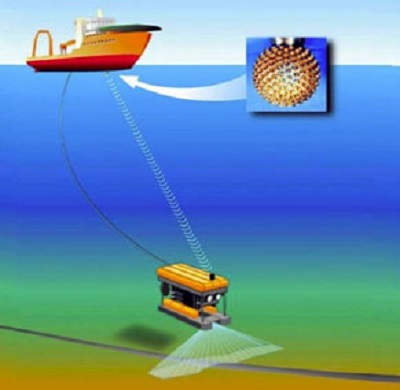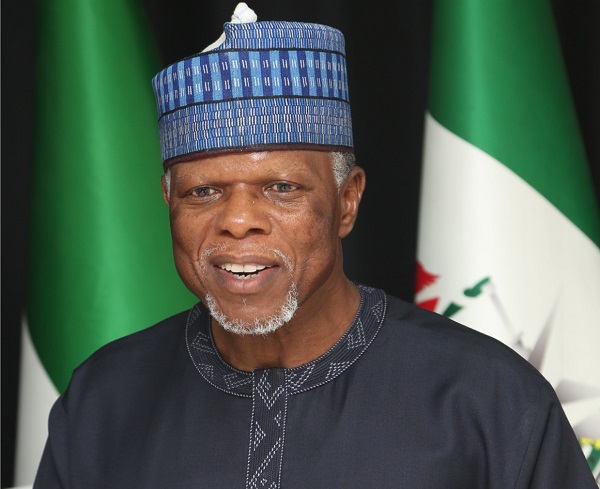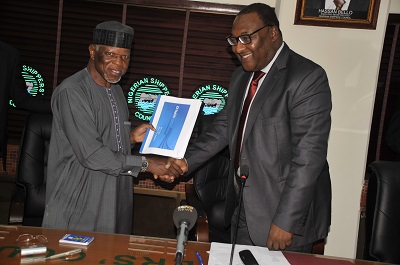Strategy For Growth In Nigeria Ship Building Industry

Engr. Uba Basil Ajala is the Managing Director of Delta Marine shipping company Limited and a member of the Nigerian Society of Engineers. In this week’s edition of Shipper’s Guide he explains the need for development in ship and the ship building industry and its effect on the Nigerian economy. Read on.
What is the Relevance of shipping and shipbuilding to the economic growth of the maritime industry?
Maritime has to do with all that is associated with our asset of large expanse of water including the navigable internal waterways. Thus any industry developed to explore and exploit this asset could be regarded as a maritime industry.
The country must invest enormously in ship building. Without this, the nation will just continue to be a follower and not a pace setter as far as the maritime business is concerned.
The Secretary General of the International Maritime Organization once said “If there were no ships, half of humanity would die of starvation and the other half of cold.”
The world shipbuilding industry is worth over $100 billion now and in 2008, South Korea’s ship construction level became higher than that of the entire world combined with Hyundai shipyard launching a new vessel every 4 days. Today, South Korea is among the first 10 shipping nations in the world. Unfortunately, according to the World Shipping Council statistics, no nation in Africa made the first 20 list.
Nigeria has 84,000 square metres of maritime area to explore, exploit and protect. This maritime area accounts for over 90 per cent of the nations’ international commerce using ships. In addition, Nigeria is a member of the Gulf of Guinea (GoG) Commission and must play a leading role in the exploration, exploitation and protection of the GoG.
According to Kachikwu, the current Group Managing Director of the Nigerian National Petroleum Corporation (NNPC), “Nigeria loses over $7 billion annually as a result of illegal bunkering and pipeline vandalism. Again, many shipping companies lifting the nation’s crude oil and Liquefied Natural Gas (LNG) are not registered in Nigeria and neither pays tax nor creates employment for Nigerians. Thus, these losses through crude theft, nonpayment of taxes and unemployment are now manifesting in very low Human Development Index (HDI) for Nigeria.”
What are the contributions of shipping and shipbuilding to economic development?
Employment Creation: brokers and agents for ship owners, the people who arrange for loading and discharge of loads for the ship; Managers are commissioned agents who manages the ships technically, crewing or operations etc.; Superintendents are supervises dry-dock repairs; Surveyors are those who Inspects and examines the ship; Insurance – Risk management tool and Lawyers who guides on regulatory issues.
Similarly, improvement of transportation is a major contribution of shipping and virtually all the big industries in Nigeria need shipping for their raw materials or export of their finished goods. The nation also needs ships for moving personnel and for security of her assets at sea.
Shipping also contributes in deepening of industrial base; the conventional submarine built in Brazil, had 36,000 components and getting many of these items produced in Brazil, involved all the major aspects of the industrial sector thereby deepening the feeder industries for national development. As a foreign exchange earner, shipping would conserve the much needed foreign exchange for Nigeria.
It costs about $10,000 – $20,000 per day to charter tankers of 4000 – 15000 mt capacity for moving products within Nigeria. These activities happen every day to support product availability in Nigeria. It costs about $ 500,000 to dry dock a 5000 mt tanker for statutory surveys and most of it is currently done outside Nigeria. These foreign exchange earnings from non-oil sector could be vital to the national development of a country like Nigeria that is mainly dependent on oil.
What is the current level of development of ship building in Nigeria?
Shipbuilding in Nigeria started in Opobo Shipyard that was established by the United African Company in 1940. Other shipyards were: Witt and Bustch Shipyard in Port Harcourt established in 1965, it built many tugboats, piling rigs and barges before it was sold to the Nigerian Navy (NN) in 1990, Continental Shipyard Limited (CSL) in 1996, Nigerdock Plc in Lagos, West Atlantic Shipyard (WAS) Limited established in 2005.
Some of the ships locally built in Nigeria are; Small craft, below 300 tons, passenger ferries, mooring launchers, harbour launchers, water buses, and vehicular ferries.
What are the limitations facing shipping and shipbuilding in Nigeria?
The Naval Ship Yard Limited (NSYL) has built many inland water ships. It focused on repairs until October 2007 when it flagged off a shipbuilding project tagged “SDB Project”. The first SDB project has been completed and the resultant vessel, a 31m NNS ANDONNI has been working safely for over 3 years now. The second SDB Project, 38m vessel is now being built at in Lagos.
Some of the challenges faced in successfully executing these project are inadequate skilled manpower, poor ship construction structure, shallow market articulation, low capacity of ship construction facilities and poor ship acquisition pattern.
So, what are the strategies for growth in shipping and the ship building industry in Nigeria?
Sustained manpower training, many schools could not attract suitable trainers due to the poor salary structure imposed on them by the government or unions. Again, the attempt by some to establish schools for shipping and shipbuilding manpower training has been frustrated by one agency or interest group. A look at the requirement for establishment of private schools will explain this more.
Another major area is to develop our maritime database; it could be set up and domiciled with an independent body or the Nigerian Maritime Administration and Safety Agency (NIMASA). This should serve as a one stop shop for all prospective investors in the Nigerian Maritime industry. A lot of Nigerians and foreigners are interested in the Nigerian maritime industry but the lack of proper documentation of the required steps to take in arriving at safe investment is denying the industry, this much needed inflow of cash.
The immense opportunity offered by well-developed shipping and shipbuilding in Nigeria need to be articulated in a media campaign pursued aggressively in liaison with the Nigerian Content Consultative Forum (NCCF). It will involve seminars, workshops, conferences, adverts in print and electronic media as well as in-house publications online.
Aggressive public enlightenment could start by first quarter of 2016. This effort could transform to setting up a lobby group and the Nigeria shipbuilding product marketing outfit for improved growth.
Upgrade of ship construction facilities and implementation of ship acquisition best practices.
With strict adherence to the standard best practices, this would ensure that good ships for Nigeria service are acquired for improved national development. The Nigerian banks maritime desks need to have mandatory retainership of professional shipping and shipbuilding experts. The investors need not sacrifice professionalism for short term cost saving that will hunt us later.







